Activist Spotlight: Melissa Ditmore on Responsible Advocacy and No-BS Research
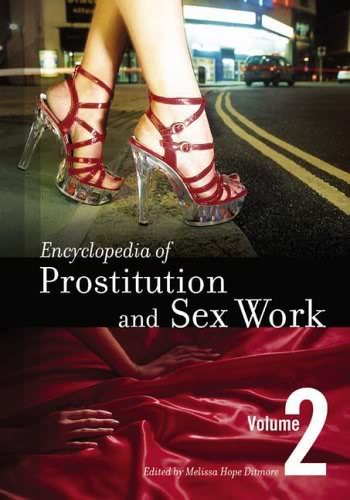 Dr. Melissa Ditmore is one of the sex workers’ rights movement’s most cherished academics. For twelve years, she has worked as a freelance research consultant, with an impressive list of clients that includes AIDS Fonds Netherland, UNAIDS, The Sex Workers’ Rights Project at the Urban Justice Center, and The Global Network of Sex Work Projects (NSWP). Her work has focused not only on sex workers’ rights, but also those of similarly marginalized groups like migrant workers and drug users. She edited the groundbreaking anthology Sex Work Matters and the history Prostitution and Sex Work, headed seminal research like the Sex Workers’ Project’s “Behind Closed Doors,” and she’s written regular pro-sex workers’ rights pieces for RH Reality Check and The Guardian. The project she’s most known for, though, is the gargantuan effort that produced Encyclopedia of Prostitution and Sex Work, a two volume labor of love that has already become a movement classic since its publication in 2006.
Dr. Melissa Ditmore is one of the sex workers’ rights movement’s most cherished academics. For twelve years, she has worked as a freelance research consultant, with an impressive list of clients that includes AIDS Fonds Netherland, UNAIDS, The Sex Workers’ Rights Project at the Urban Justice Center, and The Global Network of Sex Work Projects (NSWP). Her work has focused not only on sex workers’ rights, but also those of similarly marginalized groups like migrant workers and drug users. She edited the groundbreaking anthology Sex Work Matters and the history Prostitution and Sex Work, headed seminal research like the Sex Workers’ Project’s “Behind Closed Doors,” and she’s written regular pro-sex workers’ rights pieces for RH Reality Check and The Guardian. The project she’s most known for, though, is the gargantuan effort that produced Encyclopedia of Prostitution and Sex Work, a two volume labor of love that has already become a movement classic since its publication in 2006.
Jessica Land: How did you come to edit the Encyclopedia of Prostitution and Sex Work? It’s such an important work for both academics and sex workers’ rights activists, but buying the Encyclopedia isn’t feasible for many people due to price. For this reason, I’m almost giddy every time I find the volumes in a library. Is the Encyclopedia widely available in library settings?
Melissa Ditmore: I am always thrilled to see the Encyclopedia in libraries and in their catalogs! As you say, it’s an expensive book, as are most reference works. Reference books are intended for libraries, so this is how most people will get access to it. It had a second printing, so it sold well, mostly to university libraries and public libraries. Jorge Luis Borges wrote a story about a fictional encyclopedia that influences history. What I want for the Encyclopedia is for some of the history to be easily found and remembered, and being in libraries is key to that.
The publisher wanted to do this, and contacted Priscilla Alexander, who co-edited Sex Work, about taking it on. She was interested and asked me to work on it with her. As we worked on the proposal, it became clear that her job was too demanding for her to be able to do both her job and such a large editing project. And it was a large project: Priscilla helped with the initial list of entries, and there are 342 entries by 179 authors. Priscilla remained on the advisory board and was very helpful throughout.
Your vast contributions to sex work research have served the interests of sex workers’ rights activists for twelve years. You’ve been involved with a wide range of organizations, from the Global Network of Sex Work Projects (NSWP) to PONY (Prostitutes of New York.)What are some of the harder things you have confronted?
PONY once received an inquiry from a female law enforcement officer in the American south, and I followed up. This officer told me that a well-connected officer she worked with was abusing his power to commit extreme violence. She said that he used his badge to force women into his car, and then he would take them far away from the place they met. She believed he had murdered women, and she feared for herself if she brought attention to it, but could not live with staying quiet either. While PONY had helped other people with referrals to attorneys and even introduced them to someone who successfully pressed charges against a serial rapist in NYC, PONY had nothing to offer her in her region, and this guy may have murdered again. She only got to vent, and I hope she found the courage to report her violent co-worker to the feds, as she made it sound like the equivalent of internal affairs there would not be helpful or concerned. That was deeply distressing for both of us.
Readers of Tits and Sass know that murders of sex workers are all too common and often happen without diligent investigation, as documented in the recent book Lost Girls.
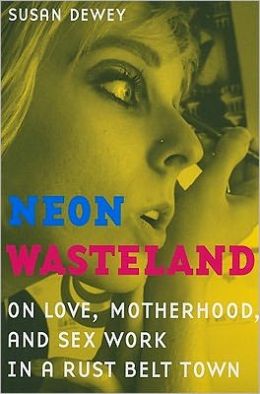 Susan Dewey conducted fieldwork for her academic study at a strip club she calls “Vixens” in a town she calls “Sparksburgh” in the post-industrial economy in upstate New York. She describes interacting with approximately 50 dancers but focuses on a few: Angel, Chantelle, Cinnamon, Diamond, and Star. Some names were changed, but these pseudonyms will sound familiar to anyone who has spent time in a club. The run-down club offers entertainment for working class people in an area with high unemployment. The club is not glamorous but is perceived as the best opportunity in a place of few options, including a few other bars with exotic dancers.
Susan Dewey conducted fieldwork for her academic study at a strip club she calls “Vixens” in a town she calls “Sparksburgh” in the post-industrial economy in upstate New York. She describes interacting with approximately 50 dancers but focuses on a few: Angel, Chantelle, Cinnamon, Diamond, and Star. Some names were changed, but these pseudonyms will sound familiar to anyone who has spent time in a club. The run-down club offers entertainment for working class people in an area with high unemployment. The club is not glamorous but is perceived as the best opportunity in a place of few options, including a few other bars with exotic dancers.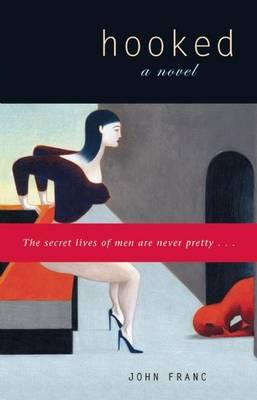 “We were all monsters” the nameless narrator tells us four sentences into Hooked by John Franc. The “we” refers to nine men who live in a city where prostitution is conveniently legal and when the men learn this fact, they begin a downward, hooker-hopping spiral of frightening velocity that ends in the most melodramatic plot development in the history of ever. (Does any American man have nine friends he’d trust to join him as he frequents brothels? I digress.) As you might imagine, for me, a prostitute, that opening line was about as appealing an introduction as a fart in the face. But it was accurate warning for what lay ahead. I can’t think of many books I’ve hated as much as I did Hooked, and it’s easy to explain why. The book, a novel imitating a memoir, is essentially a polemic. The husbands are unsympathetic villans, the wives are unsympathetic victims, and prostitutes are the objects with which men hurt non-prostitute women—and ultimately, destroy themselves. Shorter version: prostitution is bad, mmkay? When men hire prostitutes, other people end up hurt. It’s a literal [spoiler alert, as if anything could spoil the already terrible experience of suffering through this] killer!
“We were all monsters” the nameless narrator tells us four sentences into Hooked by John Franc. The “we” refers to nine men who live in a city where prostitution is conveniently legal and when the men learn this fact, they begin a downward, hooker-hopping spiral of frightening velocity that ends in the most melodramatic plot development in the history of ever. (Does any American man have nine friends he’d trust to join him as he frequents brothels? I digress.) As you might imagine, for me, a prostitute, that opening line was about as appealing an introduction as a fart in the face. But it was accurate warning for what lay ahead. I can’t think of many books I’ve hated as much as I did Hooked, and it’s easy to explain why. The book, a novel imitating a memoir, is essentially a polemic. The husbands are unsympathetic villans, the wives are unsympathetic victims, and prostitutes are the objects with which men hurt non-prostitute women—and ultimately, destroy themselves. Shorter version: prostitution is bad, mmkay? When men hire prostitutes, other people end up hurt. It’s a literal [spoiler alert, as if anything could spoil the already terrible experience of suffering through this] killer!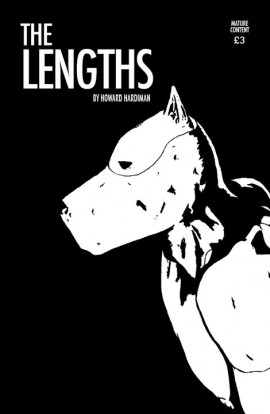
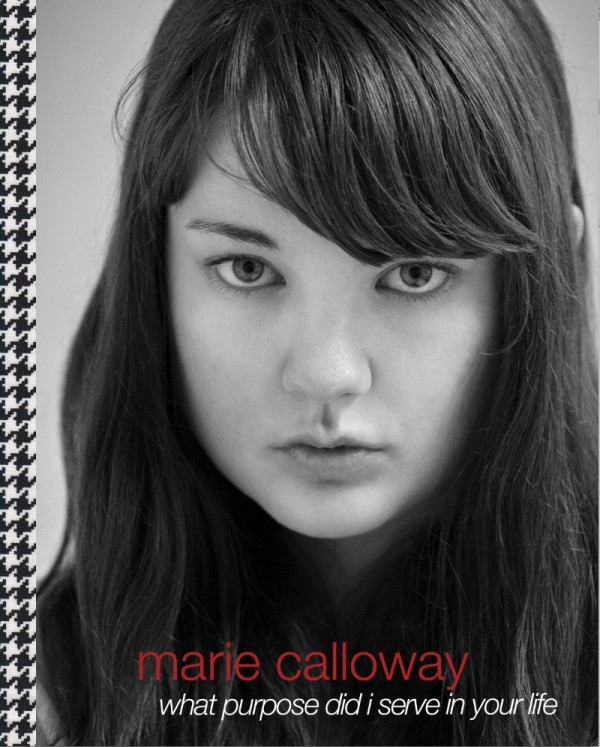 Prior to the publication of her debut novel, Marie Calloway was best known for the stories “
Prior to the publication of her debut novel, Marie Calloway was best known for the stories “